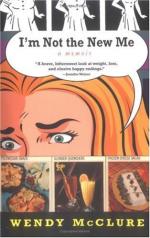Lord Charles Wheatley, having taken leave in London (in a parting not overcharged with emotion) of Miss Beatrice Hipgrave, to whom he is to be married in a year; of her mother, Mrs. Kennett Hipgrave. and of Mr. Bennett Hamlyn, a rich young man who gives promise of seeing that Miss Hipgrave does not wholly lack a man’s attentions in the absence of her lover,—sets put to enter possession of a remote Greek island, Neopalia, which he has purchased of the hereditary lord, Stefanopoulos. But on arriving he finds himself anything but welcome. He and his companions,—namely, his cousin, Denny Swinton; his factotum, Hogvardt; and his servant, Watkins,—are at once locked up; and though released soon, it is with a warning from the populace, headed by Vlacho, the innkeeper, that if found on the island after six o’clock the next morning, their lives will not be worth much. Toward midnight, little disposed to sleep, and curious to look about somewhat before leaving the island, they stroll inland, and come by chance upon the manor-house, still and apparently deserted. Curiosity drives them to enter. They find Lord Stefanopoulos, whom Vlacho had reported to them as recently dead of a fever, not dead, but on the point of dying—from a dagger wound. And the wound, they learn from his own lips, was given him by his nephew, Constantine, in a tumult that arose a few hours before when the people came up to protest against the sale of the island, and to persuade the lord to send the strangers away. Constantine, it further appears, is making them all their trouble, having come to the island just ahead of them to that end, after learning their plans by overhearing Wheatley talking in a London restaurant. In the darkness, on their way up, they have met a man and a woman going toward the village. The man, by his voice, they knew to be Constantine. The woman, they now learn, was the Lady Euphrosyne, cousin of Constantine and heiress to the island. From talk overheard between her and Constantine, she had seemed to be, while desirous of their departure, also anxious to spare them harm. In full possession of the house, they decide to stand siege, though scant of provisions and ammunition, and armed only with their own revolvers and a rifle left behind by Constantine. Soon Stefanopoulos dies, and by an old serving-woman they send warning to Constantine that he shall be brought to justice for his crime. Thus passes the night. Next morning Wheatley’s attention is engaged by a woman studying them through a field-glass from before a small bungalow, higher up the mountain. Then Vlacho, the innkeeper, presents himself for a parley, of which nothing comes but the disclosure that Constantine is pledged to marry Euphrosyne, while already secretly married to another woman. The evening falls with the “death-chant” sounding in the air—a chant made by Alexander the Bard when an earlier Lord Stefanopoulos was killed by the people for having tried to sell the island. Lord Wheatley himself tells the story.




